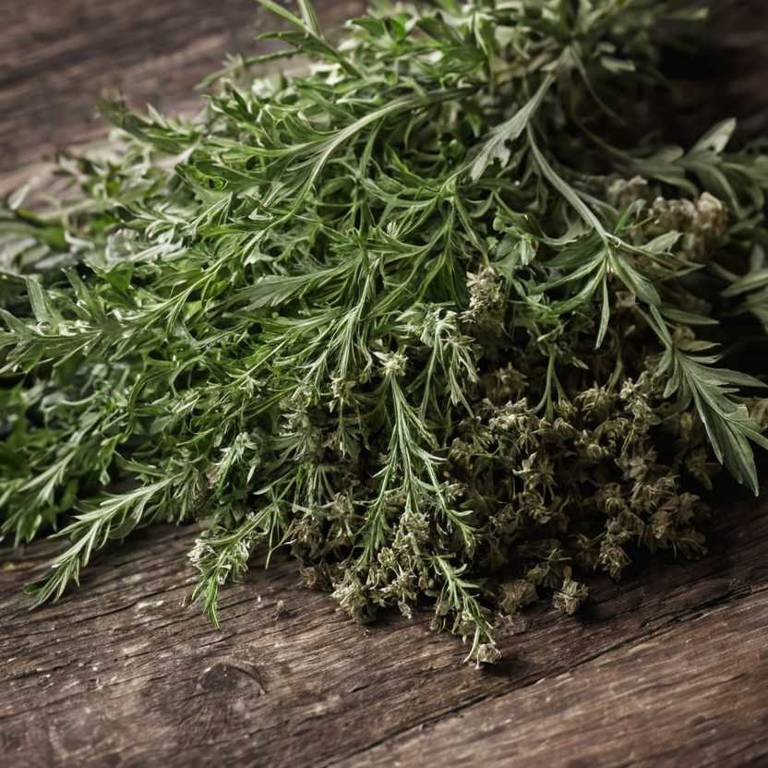10 Best Artemisia Dracunculus Health Benefits

Artemisia dracunculus, commonly known as tarragon, offers a variety of health benefits due to its rich content of essential oils and antioxidants.
It has been traditionally used to aid digestion by stimulating the production of digestive enzymes and reducing bloating. The herb also possesses anti-inflammatory properties that may help alleviate symptoms of conditions such as arthritis and inflammatory bowel disease. Tarragon is believed to have antimicrobial effects, supporting immune health by combating harmful bacteria and fungi.
Additionally, it may contribute to weight management by increasing feelings of fullness and reducing appetite.
1. Boosts immunity
Artemisia dracunculus boosts immunity by containing compounds that support the body's natural defense mechanisms.
Its essential oils, such as thujone and camphor, have antimicrobial and anti-inflammatory properties that help fight off infections. Studies suggest that it may enhance the production of white blood cells, which are crucial for immune response. The plant is also believed to stimulate the lymphatic system, aiding in the removal of toxins and improving overall immune function.
Regular use of Artemisia dracunculus may contribute to a stronger and more resilient immune system.
2. Reduces inflammation
Artemisia dracunculus reduces inflammation by containing compounds such as thujone and other essential oils that possess anti-inflammatory properties.
These bioactive components help inhibit the production of pro-inflammatory cytokines, thereby alleviating symptoms associated with inflammatory conditions. It has been traditionally used in herbal medicine to treat ailments like arthritis and skin inflammation. Modern research supports its potential role in modulating inflammatory responses in the body.
This makes Artemisia dracunculus a valuable natural remedy for managing chronic and acute inflammatory disorders.
3. Improves digestion
Artemisia dracunculus improves digestion by stimulating the production of digestive enzymes in the stomach and intestines, which helps break down food more efficiently.
Its essential oils contain compounds like thujone and camphor that can enhance gut motility and reduce bloating. This herb also has mild antimicrobial properties that may help eliminate harmful bacteria in the digestive tract. Regular consumption of Artemisia dracunculus can support overall gastrointestinal health and alleviate symptoms of indigestion.
As a result, it is often used in traditional medicine to promote smoother digestion and nutrient absorption.
4. Enhances sleep
Artemisia dracunculus enhances sleep by promoting relaxation and reducing anxiety, which are common barriers to restful sleep.
The plant contains compounds like thujone and other volatile oils that may interact with the central nervous system to induce a calming effect. Some studies suggest that aromatherapy using Artemisia dracunculus can help improve sleep quality and duration. It is often used in herbal remedies and essential oils to create a soothing environment for bedtime.
However, it is important to use it cautiously, as high concentrations may have stimulating effects in some individuals.
5. Eases pain
Artemisia dracunculus eases pain through its anti-inflammatory and analgesic properties, which help reduce discomfort associated with various conditions.
The plant contains compounds such as thujone and camphor, which have been shown to interact with the nervous system to alleviate pain signals. Traditionally used in herbal medicine, Artemisia dracunculus has been applied topically for muscle aches and joint pain. Its pain-relieving effects are supported by both historical use and modern research into its pharmacological properties.
As a result, it remains a valuable natural remedy for managing pain in a holistic health approach.
6. Supports liver
Artemisia dracunculus supports liver function by promoting the detoxification processes within the organ.
It contains compounds that help protect the liver from damage caused by toxins and free radicals. This herb is known to stimulate the production of bile, which aids in the digestion of fats and the elimination of waste products. Its anti-inflammatory properties may also reduce liver inflammation and improve overall hepatic health.
As a result, Artemisia dracunculus is often used in traditional medicine to support liver health and enhance its natural detoxifying abilities.
7. Relieves stress
Artemisia dracunculus relieves stress by promoting a calming effect on the nervous system through its aromatic compounds.
The plant contains essential oils that have been traditionally used in aromatherapy to reduce anxiety and promote relaxation. Studies suggest that inhaling the scent of tarragon can lower cortisol levels, helping to mitigate the body's stress response. Its use in herbal teas and topical applications further supports its role in managing stress-related symptoms.
Overall, Artemisia dracunculus offers a natural and accessible way to support emotional well-being during times of stress.
8. Detoxifies body
Artemisia dracunculus detoxifies body by supporting the liver's natural function in processing and eliminating toxins.
This herb contains compounds that may enhance the body's ability to break down harmful substances, promoting overall cleansing. It is believed to help remove heavy metals and other pollutants from the system, contributing to improved health. The detoxifying properties of Artemisia dracunculus can also aid in reducing inflammation and boosting immune response.
Regular use of this herb may support long-term health by maintaining the body's internal balance and efficiency.
9. Prevents infection
Artemisia dracunculus prevents infection by exhibiting strong antimicrobial properties that inhibit the growth of bacteria and fungi.
The plant contains compounds such as thujone and camphor, which have been shown to disrupt the cell membranes of pathogens. These natural compounds make it effective in treating wounds and reducing the risk of bacterial infections. Its use in traditional medicine has long supported its role in promoting healing and preventing microbial invasion.
Modern research continues to explore its potential as a natural alternative to synthetic antibiotics.
10. Promotes focus
Artemisia dracunculus promotes focus by enhancing cognitive clarity and mental alertness.
This herb is known to stimulate the central nervous system, which can help improve concentration and mental stamina. It is often used in traditional medicine to support mental performance and reduce mental fatigue. The active compounds in Artemisia dracunculus may contribute to its ability to sharpen attention and support sustained mental effort.
As a result, it is valued as a natural aid for individuals seeking to boost their productivity and mental acuity.